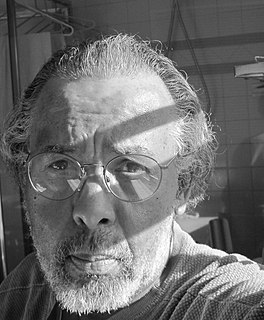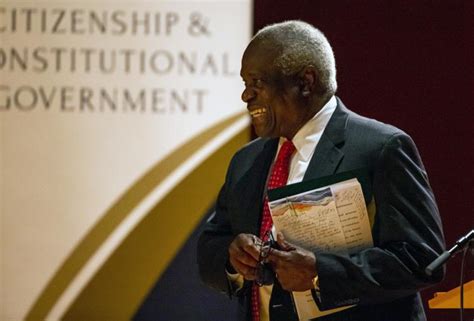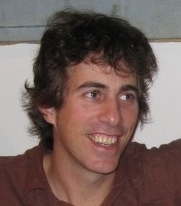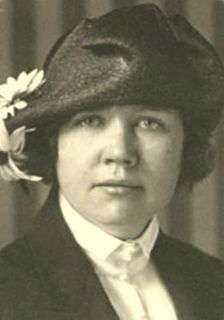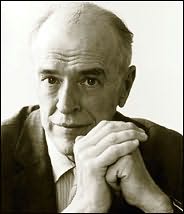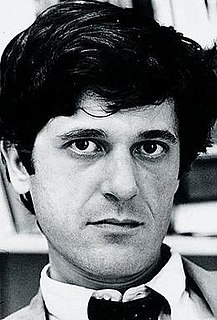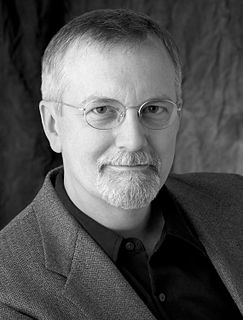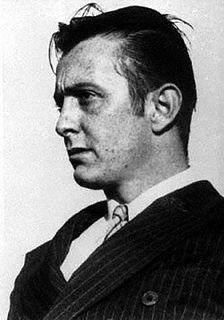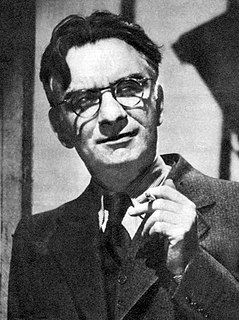Top 311 Typewriter Quotes & Sayings - Page 5
Explore popular Typewriter quotes.
Last updated on April 20, 2025.
A computer is like a violin. You can imagine a novice trying ?rst a phonograph and then a violin. The latter, he says, sounds terrible. That is the argument we have heard from our humanists and most of our computer scientists. Computer programs are good, they say, for particular purposes, but they aren’t ?exible. Neither is a violin, or a typewriter, until you learn how to use it.
There was a time when most people had a choice between two kinds of personal communication, handwriting or using a typewriter. Today, people are invited to choose from a list of (surprisingly exotic) typefaces every time they turn on their computer. I think this has made everyone more aware of the idea that picking a typeface is a conscious choice.
It's just interesting to me that the physical enactment of that mind moving has gradually changed for you in the last few years. It made me wonder if the change was deliberate in any sense, or procedural, like when A.R. Ammons stuck an adding machine roll into his typewriter to squeeze his verses into shorter lines.
I like to always stop with a couple of pages that I haven't - that are just raw copy, where I haven't touched it, I haven't tried to revise it, I haven't tried to polish it. It's like having a little bit of a runway. The next day when you sit down, you have the comfort of saying, well, I have got a little bit here, used to be in the typewriter. Now it's in the magic box, the computer.
If I could write directly on a typewriter or a computer, I would do it. But keyboards have always intimidated me. I've never been able to think clearly with my fingers in that position. A pen is a much more primitive instrument. You feel that the words are coming out of your body and then you dig the words into the page.
I've had a lot of typewriters that I've had relationships with; one still has a piece of masking tape that says "$8" on it. I love working on them. I can't fix a computer or a car, but I can fix a typewriter. I like them because you can write on them late at night, depending on what you're fortifying yourself with, and the next morning you can still figure what you wrote.
If I let my fingers wander idly over the keys of a typewriter it might happen that my screed made an intelligible sentence. If an army of monkeys were strumming on typewriters they might write all the books in the British Museum. The chance of their doing so is decidedly more favourable than the chance of the molecules returning to one half of the vessel.
It took me thirty-six years; and, in some fifty stories, ranging in length from short-shorts to novels, I think I must have touched, in one way or another, on every aspect of computers and computerization. And (mark this!) I did it without ever knowing anything at all about computers in any real sense. To this day, I don't. I am totally inept with machinery... on my typewriter I turn out books at the contemptible rate of one a month
I go through periods where I work a great deal at all hours of the day whenever I am around a typewriter, and then I go through spells where I don't do anything. I just sort of have lunch - all day. I never have been able to stick to a schedule. I work when there is something due or when I am really excited about a piece.
When you write for a living and you can't do anything else, you know that sooner or later that the deadline is going to come screaming down on you like a goddamn banshee. There's no avoiding it...So one day you just don't appear at the El Adobe bar anymore; you shut the door, paint the windows black, rent an electric typewriter and become the monster you always were - the writer.
For me, form is something I locate in the process of writing the poems. What I mean is, I start scribbling, and then try to form the poem - on a typewriter or on my computer - and, by trial and error, try to find the right shape. I just try to keep forming the poem in different ways until it feels right to me.
I've never considered soundtracks for what I write. Nor have I considered computer drawing or painting. As a painter, I'm still trying to perfect what I started out doing with brushes, pen and ink, paint, etc. The transition, for me, from typewriter to computer was a big step. I am now very comfortable with writing on a computer but it took awhile. Because I did make that big step I won't rule out what happens in the future.
What a story that would make! How many men and women go through the same rivers, menaced by the same sharp clichés, the same jagged dangers that have threatened us! If the idea stands up, I thought, it would be worth uncovering the typewriter! How Richard-years-ago would have wanted to know: What happens when we set off searching for a soulmate who doesn't exist, and find her?
My art school rejection letter arrived as a cold manila fist that closed around my fragile hopes ... The fear was practically edible. Nothing would happen unless I get out and make it happen. Then, as if handling me the keys to the jet pack, my dad bought me a typewriter and a taped message to the inside of its case: "Son - the world is waiting to hear from you".
I will now claim - until dispossesed - that I was the first person in the world to apply the typewriter to literature. ... The early machine was full of caprices, full of defects- devilish ones. It had as many immoralities as the machine of today has virtues. After a year or two I found that it was degrading my character, so I thought I would give it to Howells. ... He took it home to Boston, and my morals began to improve, but his have never recovered.
The poet’s life is just so much crenellated waste, nights and days whipping swiftly or laboriously past the cinematic window. We’re hunched and weaving over the keys of our green our grey or pink blue manual typewriter maybe a darker stone cold thoritative selectric with its orgasmic expectant hum and us popping pills and laughing over what you or I just wrote, wondering if that line means insult or sex. Or both. Usually both.
I don't even own a computer. I write by hand then I type it up on an old manual typewriter. But I cross out a lot - I'm not writing in stone tablets, it's just ink on paper. I don't feel comfortable without a pen or a pencil in my hand. I can't think with my fingers on the keyboard. Words are generated for me by gripping the pen, and pressing the point on the paper.
If you're going to be a writer you should sit down and write in the morning, and keep it up all day, every day. Charles Bukowski, no matter how drunk he got the night before or no matter how hungover he was, the next morning he was at his typewriter. Every morning. Holidays, too. He'd have a bottle of whiskey with him to wake up with, and that's what he believed. That's the way you became a writer: by writing. When you weren't writing, you weren't a writer.
I was standing on the shoulders of other science fiction writers like William Gibson, who had written 'Neuromancer' on a typewriter before home computers even really existed, and Neal Stephenson who wrote 'Snow Crash' in the early '90s and imagined an online virtual world before the birth of the modern Internet.
I write on a computer, but I've run the complete gambit. When I was very young, I wrote with a ballpoint pen in school notebooks. Then I got pretentious and started writing with a dip pen on parchment (I wrote at least a novel-length poem that way). Moved on to a fountain pen. Then a typewriter, then an electric self-correct. Then someone gave me a word processor and I was amazed at being able to fit ten pages on one of those floppy discs.
I am beekeeper, but I am also a writer, and some years ago, I sat down at a typewriter to experiment with words, to try to tease out of the amorphous, chaotic and wordless part of myself the reason why I was staying on this hilltop in the Ozarks after my first husband, with whom I had started a beekeeping business, and I had divorced.
I could definitely rock out to Kraftwerk's "Tour De France," Tubeway Army, or Gary Numan. All of that stuff has an infectious beat, but with "Oh Yeah," I can't even identify what's going on. It sounds like typewriter keys, a couple of synth notes and then this really deep "Oh yeah," which I always picture as Andre The Giant on vocals.
Houses are the abiding joys; they are the most emotion-stirring of all things. An automobile is regarded with fond affection, a typewriter becomes the inseparable companion, clothes can stir sentimentality, and the bit of bric-a-brac is a toy one would weep to see torn away - but houses are real, deep, emotional things. How much excitement in the cutting of a window, what enormous importance in the angle of a roof!
I started typing diary in, I don't know, 1978 or '79, but then the computer changed that a lot. Because with the computer if you were writing and you realized you had three sentences in a row that started with the word "he," you could fix that right up, whereas on a typewriter you'd think, "Well, I'm not going to change the whole page. It's my diary." So that made a difference.
I have always been jealous of artists. The smell of the studio, the names of the various tools, the look of a half-finished canvas all shout of creation. What do writers have in comparison? Only the flat paper, the clacketing of the typewriter or the scrape of a pen across a yellow page. And then, when the finished piece is presented, there is a small wonder on one hand, a manuscript smudged with erasures or crossed out lines on the other. The impact of the painting is immediate, the manuscript must unfold slowly through time.
I write most of my first drafts on an old manual typewriter, a really old one. It's a big black metal "Woodstock" from about 1920. I try to write everything down at once, in one sitting. The longer stories in this collection are divided up into sections. Each section represents a different sitting, a different idea for the same story.
I write fiction longhand. That's not so much about rejecting technology as being unable to write fiction on a computer for some reason. I don't think I would write it on a typewriter either. I write in a very blind gut instinctive way. It just doesn't feel right. There's a physical connection. And then in nonfiction that's not the case at all. I can't even imagine writing nonfiction by hand.
History shows us a lot of things. It shows why the Lord's Prayer includes the supplication: "And lead us not into temptation." In my day, dissertations were still written by hand, or drummed out with a typewriter. In the past, you had to round up the literature, find the books and find the passages. Nowadays you click on Wikipedia or Google and you have everything you need. This probably makes it more difficult to resist temptation.
My mitochondria comprise a very large proportion of me. I cannot do the calculation, but I suppose there is almost as much of them in sheer dry bulk as there is the rest of me. Looked at in this way, I could be taken for a very large, motile colony of respiring bacteria, operating a complex system of nuclei, microtubules, and neurons for the pleasure and sustenance of their families, and running, at the moment, a typewriter.
Of all the art forms, poetry is the most economical. It is the one which is the most secret, which requires the least physical labor, the least material, and the one which can be done between shifts, in the hospital pantry, on the subway, and on scraps of surplus paper. ... poetry has been the major voice of poor, working class, and Colored women. A room of one's own may be a necessity for writing prose, but so are reams of paper, a typewriter, and plenty of time.
I used to feel guilty about spending morning hours working on a book; about fleeing to the brook in the afternoon. It took several summers of being totally frazzled by September to make me realize that this was a false guilt. I'm much more use to family and friends when I'm not physically and spiritually depleted than when I spend my energies as though they were unlimited. They are not. The time at the typewriter and the time at the brook refresh me and put me into a more workable perspective.
Sometimes language gets in the way of the story's feelings. The reader finds himself experiencing the language of the story rather than the story. The words sit there on the page like coins, with their own opacity, as though they're there for their own sake. "A man goes into a phone booth, stirring coins in his palm." "Stirring" is such an obviously selected word. You can feel the writer looking for the word as he sat at the typewriter.
I'm not superstitious in my normal daily life but I get that way about writing, even though I know it's all bullshit. But I began that way and so, that's the way it is. My ritual is I never use a typewriter or computer. I just write it all by hand. It's a ceremony. I go to a stationary store and buy a notebook and then fill it up.
Harper Lee and Truman Capote became friends as next-door neighbors in the late 1920s, when they were about kindergarten age. From the start, they recognized in each other "an apartness," as Capote later expressed it; and both loved reading. When Lee's father gave them an old Underwood typewriter, they began writing original stories together.
I'm not typing. I write only by longhand. I've always written first drafts by hand and then once I was into a second or third draft I wrote insert pages on a typewriter. But I got rid of all my typewriters about three or four novels ago and now I do everything by hand. I write by hand because it makes me go slow and going slow is what I like.
Listen closely. There’s a remote possibility that you might learn something: First, I don’t give a damn if my work is commercial or not…I’m the writer. If what I write is good, then people will read it. That’s why literature exists. An author puts his heart and guts on the page. For your information, a good novel can change the world. Keep that in mind before you attempt to sit down at a typewriter. Never waste time on something you don’t believe in yourself.
A lot of novelists start late-Conrad, Pirandello, even Mark Twain. When you're young, chess is all right, and music and poetry. But novel-writing is something else. It has to be learned, but it can't be taught. This bunkum and stinkum of college creative writing courses! The academics don't know that the only thing you can do for someone who wants to write is to buy him a typewriter.
I got so discouraged, I almost stopped writing. It was my 12-year-old son who changed my mind when he said to me, "Mother, you've been very cross and edgy with us and we notice you haven't been writing. We wish you'd go back to the typewriter. That did a lot of good for my false guilts about spending so much time writing. At that point, I acknowledged that I am a writer and even if I were never published again, that's what I am."
Most writers I know have switched to word processors. I haven't but I'm very curious about why people like it so much. I think it has something to do with the fact that at last writing, which has been such an old-fashioned, artisanal activity, even on a typewriter, has now entered the central domain of modern experience which is that of making copies, being involved in the world of duplicates and machine-mediated activities.
If you want to be a writer, all you need is a piece of paper and a pencil, and I had a manual typewriter. It doesn't cost money to write. It costs money to make art. So I would just write. I would hand out stories in the classes in high school. And the teacher would say, "Whatever you do, don't become a writer."
Salinger is such a terrific writer; he did so many great things. He is one of those writers that I still reread, simply because he makes me see the possibilities and makes me feel like writing. There are certain writers who put you in the mood to write. In the way a whiff of a cigar will bring back memories of a ballgame on a Saturday afternoon, reading Salinger makes me want to get to the typewriter.
Ink and paper are as cheap as sand or water, almost. No board of directors has to convene in order to decide whether we can afford to write down this or that. I myself once staged the end of the world on two pieces of paper- at a cost of ...less than a penny, including wear and tear on my typewriter ribbon and the seat of my pants.
'Think of that.
Usually, the way I write is to sit down at a typewriter after that year or so of what passes for thinking, and I write a first draft quite rapidly. Read it over. Make a few pencil corrections, where I think I've got the rhythms wrong in the speeches, for example, and then retype the whole thing. And in the retyping I discover that maybe one or two more speeches will come in. One or two more things will happen, but not much.
It took time to learn that the hard thing about writing is to let the story write itself, while one sits at the typewriter and does as little thinking as possible. It happened over and over again, and the beginner learned - when you start puzzling over an idea, and slowing down on the keys, the writing gets worse and worse.
When at the typewriter I am no longer where I site but am away across the mountains, in ancient cities or on the Great Plains among the buffalo. Often I think of what pitiful fools are those who use mind-altering drugs to seek feelings they do not have, each drug taking a little more from what they have of mind, leaving them a little less. Give the brain encouragement from study, from thinking, from visualizing, and no drugs are needed.












